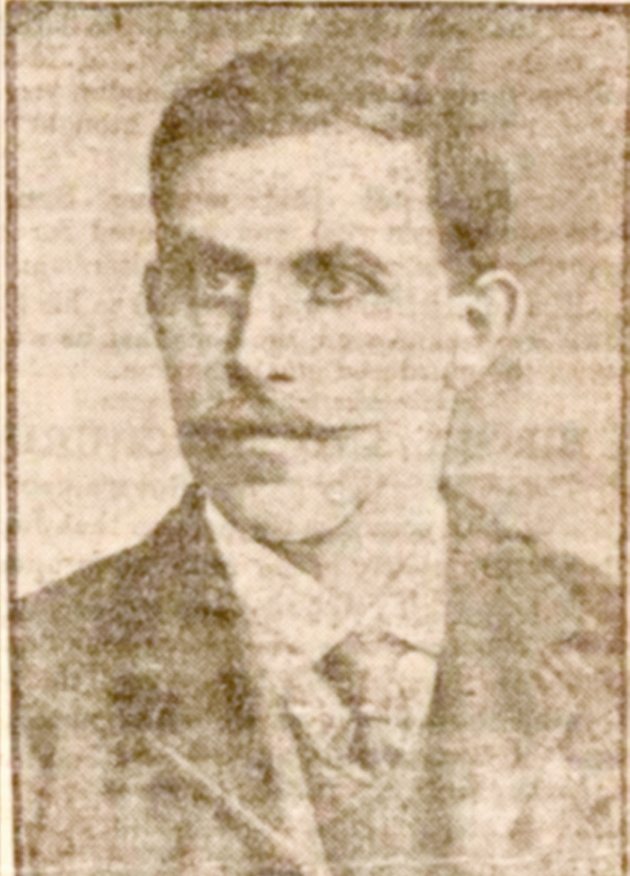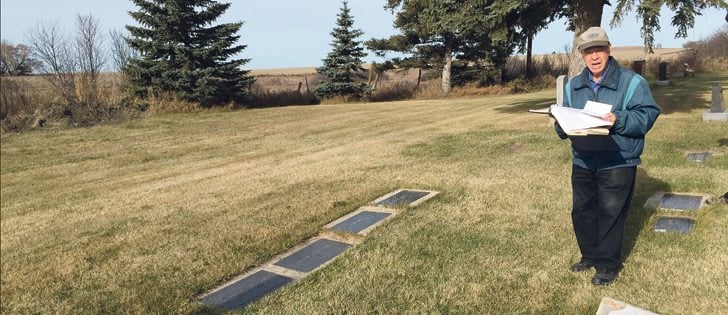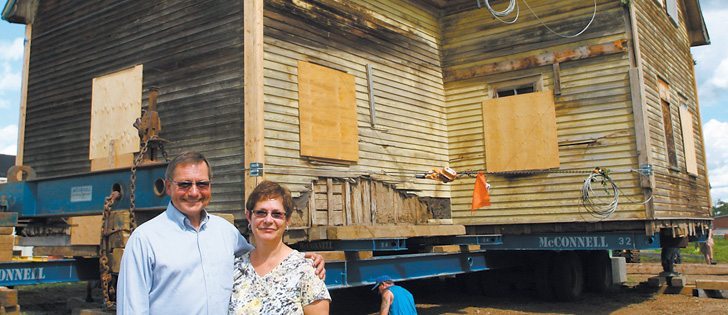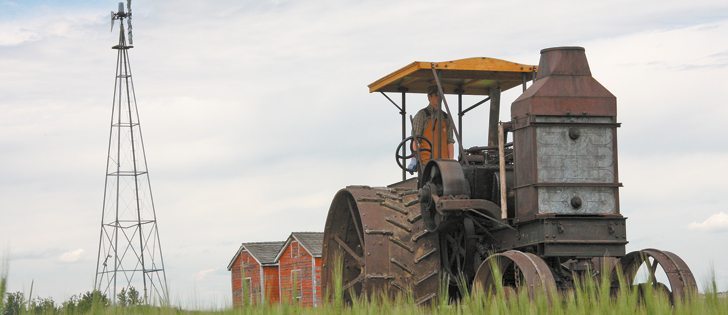PILOT MOUND, Man. — An international hunt has ended with proof that once-famous Scottish and Liverpool Football Club player John Walker is buried in this Manitoba community on the edge of a rural cemetery, marked only by his name and the dates he lived on a plain gravestone.
It helps fill in missing details of the life of a man remembered in Scottish and Liverpool football circles more than a century after his sporting day, but who appears to have been little better known in his adopted nation of Canada than any other settler.
“All I knew was that he was a professional football player in the old country,” said Rae Laval, a great-niece of John Walker, who lives in Souris, Man.
“As a child we were told.”
Indeed, beyond his descendants, John Walker’s memory had faded from Pilot Mound with the diligent tenders of the well-maintained cemetery entirely unaware that they were often passing by the gravesite of a once famous foreign sports star who had become just another prairie farmer and member of the local community.
“I had no idea, no idea,” George Gilmour said moments after helping identify the gravesite along with fellow volunteer Arnold Foidart.

Walker hadn’t been just any football player in the United Kingdom. He played on a number of Scottish teams, as well as for Liverpool in England. He scored numerous goals for all his teams and is credited with scoring the winning goal in the game against West Bromwich Albion, which handed Liverpool the league title for 1901, Liverpool’s first.
He was selected to represent Scotland on the national team five times.
That’s not a meagre history, nor one likely to be unrecognized in Britain.
But Walker’s times were momentous, and he didn’t stay in Britain. The adjustments and deprivations of early western Canadian life hammered away the details of European life for many immigrants, and settlers often left their old selves behind.
Read Also

Farming Smarter receives financial boost from Alberta government for potato research
Farming Smarter near Lethbridge got a boost to its research equipment, thanks to the Alberta government’s increase in funding for research associations.
According to family research compiled by Laval’s cousin’s son, Ian, John Walker began working for Manitoba Government Telephones after arriving in Winnipeg as an immigrant in 1910.
Then the First World War arrived and swept away an era, as well as permanently marking men like Walker, who volunteered, went oversees and served as a signals engineer in the Canadian army.
He returned to Canada in 1919 and went back to working for the telephone company. However, he later moved to Pilot Mound to become a farmer along with his brother, Thomas, and sisters, Elizabeth and Mary.
He died in 1937 while cutting wood, when a pulley belt came free and hit him, according to the family history.
Perhaps turn-of-the-century sporting memories hadn’t seemed important to him by the time he moved to the countryside and took up farming. Life in those days didn’t often leave much room for nostalgia.
However, the memories have stayed alive overseas with Liverpool, Scottish and other team historians wondering what had happened to the one-time star who had seemed to disappear from the history books.
David Speed, an historian of the Hearts team in Scotland, discovered that Walker’s date of birth had been incorrectly stated in numerous places.
A published Armadale football club history referred to Walker moving to Canada, which spurred Scotland football historian Andy Mitchell to search further and uncover a gravestone in Armadale, Scotland, that provided John Walker’s date and place of death as being in Louise, Canada.
Liverpool football historian and player grave-seeker Kieran Smith contacted Canadian grave record officials, who told him Walker was buried in Pilot Mound, Man.
Smith then wrote a letter to the Winnipeg Free Press that detailed what was known of Walker’s life and asked surviving descendants to contact him with information.
A member of Winnipeg’s Liverpool Football Club supporters group saw the letter and posted it on the organization’s Facebook page.
After seeing the letter on the Facebook page, a Western Producer reporter, who also belongs to the group, quickly scrambled out to Pilot Mound to find the grave.
So John Walker is no longer just another name on a gravestone in a rural cemetery. A long lost hero of Scotland and Liverpool has been found. And Western Canada has added another footnote to the history of the settlement era that few would have previously guessed.


















